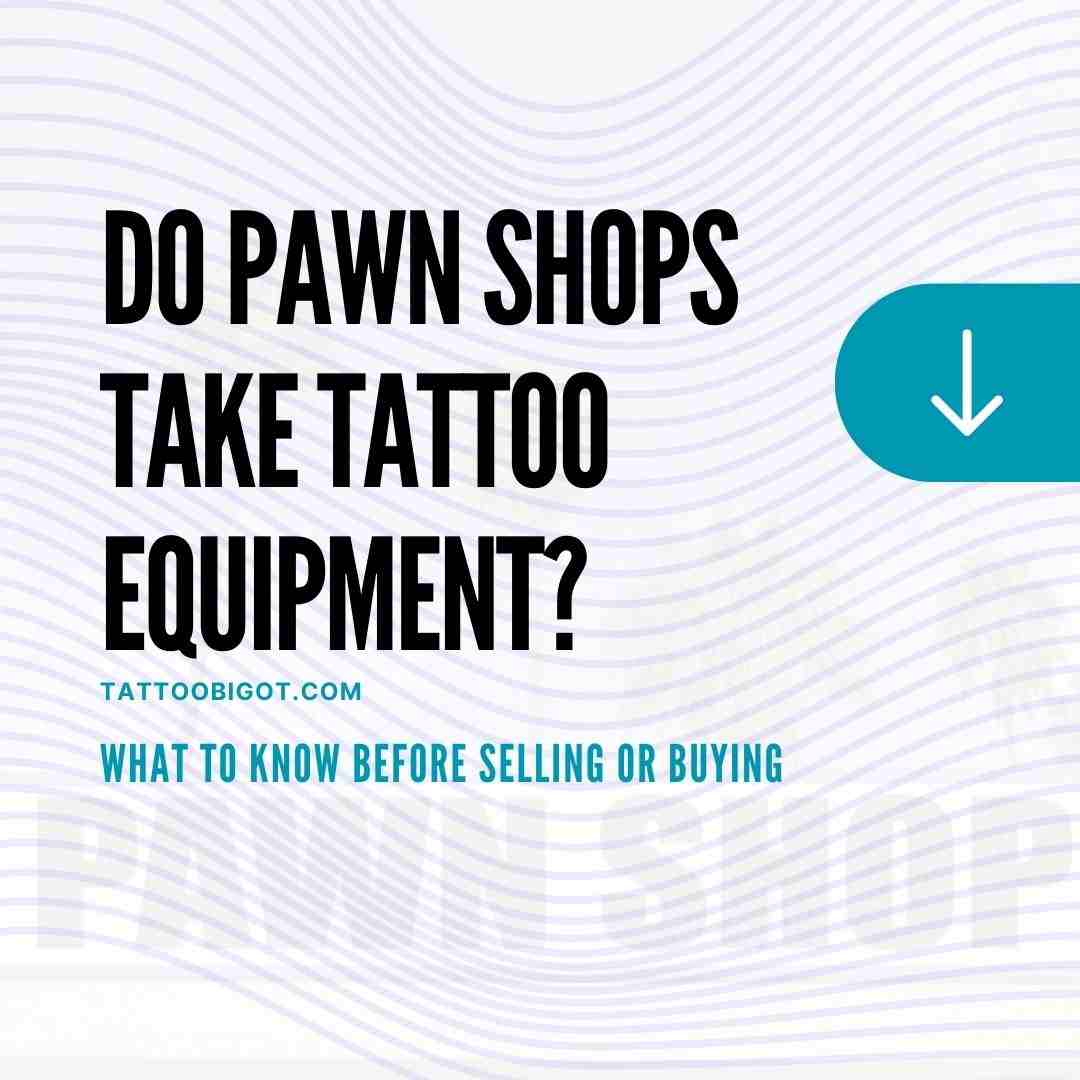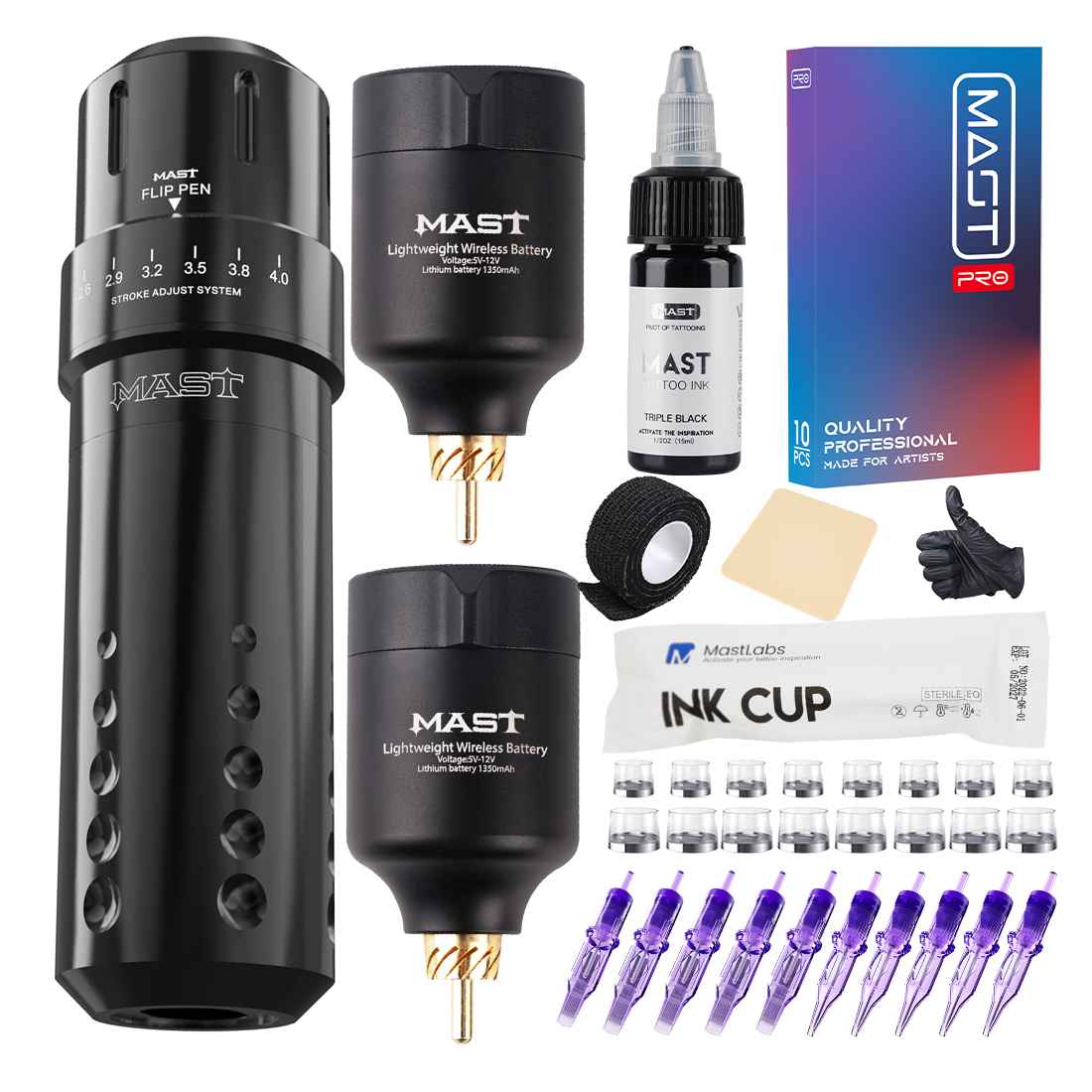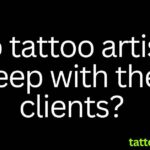Tattoo artists make significant investments in professional equipment like tattoo machines, power supplies, and needles.
But financial hardships arise at times for anyone. Some artists facing money issues turn to pawning their gear for quick cash. On the flip side, budget-conscious tattooers may look to pawn shops for discounted used equipment.
This raises the key question – do pawn shops take tattoo equipment?
In this comprehensive guide, we’ll examine the viability of pawning and purchasing tattoo devices at pawn shops. You’ll learn what equipment they will or won’t take, typical valuation, necessary verifications when buying, and alternatives to utilize during financial difficulties.
Do Pawn Shops Accept Tattoo Equipment for Loans?
Certain pawn shops that deal heavily in musical instruments, electronics, and other creative gear may also work with tattoo devices. However, several factors determine if a pawn broker accepts tattoo machines or related equipment:
Shop Specialization – More generalized shops focusing just on jewelry, watches, and basic electronics likely won’t appraise tattoo devices accurately. Look for pawn brokers familiar with creative equipment.
Local Tattoo Presence – Areas without much tattoo business provide pawn shops less exposure to tattoo machines, so they’re less equipped to assess them.
Machine Styles – Common rotary and coil machines are better known versus more obscure tools like pneumatic tattoo machines.
Condition and Components – Complete, working machines get higher offers than boxed up loose parts or DIY builds. High-end devices command more.
Verification – Artists may need to demonstrate machines working safely to assuage contamination concerns.
Profit Potential – The pawn shop must project reasonable resale value on tattoo gear to profit. Mass-produced items often have lower upside.
With some searching, tattooists can usually find at least one or two qualified pawn shops in most regions that will consider giving loans secured by tattoo equipment.
Also Read: What is Tattoo Transfer Gel? A Guide to Using Transfer Products for Stencils
What Types of Tattoo Equipment Do Pawn Shops Buy?
Pawn shops dealing in tattoo supplies typically accept these core items:
Tattoo Machines – The most pawned tattoo item. Common coil and rotary machines hold the most collateral value for loans. Rare antique or custom pieces may fetch higher offers.
Power Supplies – Reputable branded power supplies almost guarantee the pawn broker can resell them to artists. Odd or generic models get discounted heavily.
Needle Cartridges – Unopened cartridges of tattoo needles still sterile in packaging appeal to pawn shops. Used or loose needles lack worth.
Clip Cords – These inexpensive machine cords don’t bring substantial pawn value individually but provide reassurance of an intact kit.
Other sundry shop supplies like ink, grips, tubes, machine parts, etc. hold minimal pawn potential. Tattoo machines and power sources contain the most pawn loan value.
What Tattoo Equipment Do Pawn Shops Reject?
Conversely, pawn shops tend to decline the following types of tattoo supplies because of low collateral value or health concerns:
- Used, dulled needle tubes – Biohazard risks render these worthless.
- DIY tattoo machines – Difficult to authenticate quality and safety.
- Ultra-specialized tattoo tools – Small niche buyer pool limits profits.
- Partial tattoo machine components – Loose parts lack functionality for buyers.
- Cheap overseas tattoo gear – May break easily or cause problems.
- Discontinued/obsolete models – No demand from tattooers.
- Branded studio equipment – Shop name lowers appeal to other artists.
- Loose grips, pedals, caps, rubber bands – Not worth much individually.
- Partial or contaminated ink bottles – Health risks block resale.
Pawn stores can only accept items that tattoo artists will likely purchase based on trends, reliability, and pragmatic value.
Also Read: Can You Use Expired Tattoo Needles? Why Risk It? Laws, and Professional Safety Standards
How Much Do Pawn Shops Pay for Tattoo Equipment?
As with any pawned item, tattoo devices bring just a fraction of their original retail price at pawn shops. Expect to receive only about 10-30% of an item’s cost in cash:
- Basic rotary tattoo machine – $25-$100+ payout
- Premium rotary or coil machine – $75-$250
- Standard power supply – $50-$150
- High-end power supply – $100-$300
- New needle cartridges – $5-$20 each
Older or extensively used equipment near the end of its lifespan will sit at the lower end of these valuation ranges. Pristine modern gear ranks toward the top.
Remember the pawn shop must resell your equipment at a profit. Be realistic when estimating potential payouts for tattoo devices. As a last resort during desperate times, even more modest pawn shop offers provide some fast cash.
Should I Pawn My Tattoo Equipment?
Pawning your tattoo machines or power sources can supply emergency money between paychecks or cover sudden expenses when times are tight financially. But first consider the downsides:
– Low payouts – You only receive a fraction of the equipment’s worth.
– Interest charges – If you can’t repay the loan quickly, fees accumulate.
– Risk of losing collateral – Unredeemed items become pawn shop property after the loan term.
– Suspension of work – Lacking proper equipment may halt your tattooing income.
– Replacing gear – Buying new or used devices adds further costs down the road.
For those reasons, view pawning as an absolute last resort. Explore other options first like side gigs, selling prints of your tattoo art, crowdfunding help from friends and family, or applying for personal loans.
However, for short-term crises, reputable pawn shops do provide fast access to reasonable sums by leveraging your tattoo equipment’s value. Be prepared to repay the loan quickly or lose your collateralized items.
Also Read: Are Tattoo Needles Hollow? A Deep Dive Into Needle Components and Function
What to Look for When Buying Tattoo Equipment from Pawn Shops
On the flip side, pawn shops allow artists on a budget to acquire professional tattoo gear for deeply discounted prices. But take great care when purchasing used equipment to ensure quality and safety:
- Inspect machines closely for defects and wear. Test power supplies to verify function.
- Avoid pawned machines showing signs of DIY construction rather than factory production.
- Open any needle packages to check expiration dates and sterility seals.
- Ask about the equipment’s origins whenever possible. Local artist gear is ideal.
- Check that clip cords, foot pedals, power cables are included for complete kits.
- Verify engraved vs. removable brand plates on machines to confirm authenticity.
- Carefully clean and sterilize any purchased equipment following professional protocols before tattooing clients.
- Have an experienced tattooer examine devices to spot potential issues or needed repairs.
Are There Laws Regarding Tattoo Equipment at Pawn Shops?
A mix of state laws, local regulations, and general business codes apply when pawn shops deal in used tattoo gear:
Pawn transaction records – Shop must log and report details on sellers as required in applicable jurisdictions.
Proof of ownership – Sellers may need to show ID, receipts, serial numbers, or other evidence they rightfully own the equipment.
Health codes – Some areas restrict pawning previously used tattoo machines and other supplies out of contamination concerns.
Shop licensing – Pawn brokers must comply with all state and local license requirements to operate.
Holds on stolen goods – If equipment matches stolen property reports, police can confiscate it from the pawn shop pending investigation.
Minor restrictions – Pawn shops cannot conduct transactions with underage individuals per local age limit laws.
Also Read: Why Do Tattoo Artists Wrap Their Machines? Exploring This Essential Practice
Are There Alternatives to Pawning Tattoo Equipment?
If facing dire financial issues, explore all other options fully before resorting to pawning your tattoo gear at less than ideal rates. Some additional paths to gain urgent funds include:
Sell Existing Tattoo Artwork – Print copies or sell the rights to custom tattoo designs already created for clients. Offer flash sheets. Hold art sales.
Seek Patronage – Connect with loyal clients or supporters who may sponsor you through struggling periods or commission custom pieces.
Budget Cuts – Reduce any business or personal expenditures temporarily that aren’t absolute necessities.
Sell Used Gear Online – Selling directly to other artists online yields more money than pawn shops.
Crowdfunding – Campaign on sites like GoFundMe describing your situation to generate donations.
Money from Friends/Family – Ask close ones for small personal loans you repay on a schedule as income allows.
Side Gigs – Pick up temporary extra work compatible with erratic artist hours like delivery driving, freelance art, etc.
Business Loans – Explore loan/grant options for qualifying self-employed tattooers needing capital.
If pawning equipment remains the only viable path forward, use it sparingly as a short-term bridge during emergencies rather than a recurring crutch. But with some persistence and creativity, better alternatives often emerge beyond the neighborhood pawn shop.
If you’re looking for the best quality tattoo needles, I recommend dragonhawk. Check the Dragonhawk official website for amazing discounts.
Conclusion
Do pawn shops take tattoo equipment? Yes, some of them do. Pawning and purchasing tattoo equipment at pawn shops allows artists uniquely positioned to leverage or acquire professional tattoo gear during challenging times.
Yet the often unfavorable loan terms and risks of buying second-hand equipment demand due caution before pursuing this route.
With careful research into reputable pawn brokers and diligent inspection of any machines, power supplies, or needles considered, pawn shops can occasionally provide welcome solutions for both cash-strapped and budget-minded tattooers.
But a thorough understanding of the limitations and legal protocols is essential when mixing pawn shops and tattoo tools.
In most cases, better alternatives exist beyond pawning your precious tattoo gear. But for true emergencies, reputable pawn shops do represent a reasonable option to gain quick access to the value within your tattoo machines, subject to unfavorable conditions.
Frequently Asked Questions
Can I pawn just a tattoo machine frame without the motor?
No, pawn shops will only accept fully intact, functional tattoo machines. Individual detached components lack value.
Do I need my original receipts to pawn a tattoo machine?
Not necessarily, but any documentation proving ownership helps demonstrate it’s not stolen goods. Background checks also verify identity.
How do pawn shops clean used tattoo machines before selling them?
Reputable shops thoroughly sterilize second-hand tattoo gear per health codes before selling. Inspect everything carefully yourself as well.
Can I pawn disposable tattoo needles?
No, used needles are a biohazard risk and prohibited by law. Only unopened, sealed needle cartridges have potential pawn value.
Is tattoo equipment purchased from pawn shops covered by any warranty?
Almost never. Used items sold “as-is” without warranty. Ensure thorough testing yourself first or have an expert inspect.
If I pawn my tattoo power supply, how long do I have to repay the loan?
Repayment deadlines vary by location and pawn shop policies, but commonly range between 60-180 days until forfeiting your collateral.
Can minors pawn or purchase tattoo equipment from pawn shops?
No, pawn shops must follow local age limit laws regarding transactions with minors, usually 18 in most jurisdictions.
Can I negotiate deals when pawning or buying tattoo gear from pawn shops?
Pawning has fixed rates, but haggling is common when buying. Offer 20-30% below asking prices as initial counteroffers.
How do I know the tattoo machines at a pawn shop weren’t stolen goods?
There’s no absolute certainty, but checking identification and purchase records provides reassurance of legitimate ownership.
Should I get a tattoo machine from a pawn shop appraised before buying it?
Not mandatory but advisable for pricier high-end machines. A reputable artist can assess actual worth and point out any issues.






